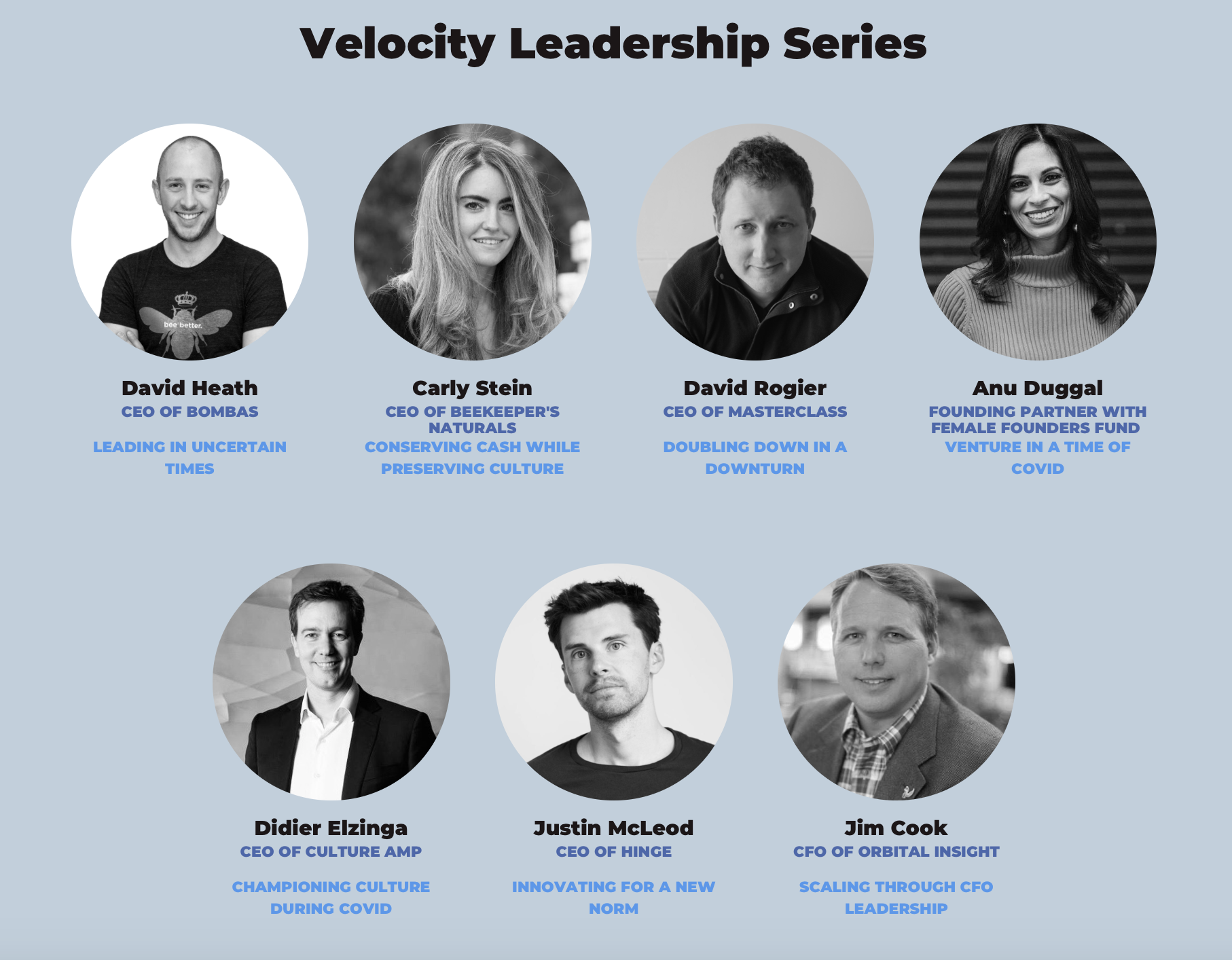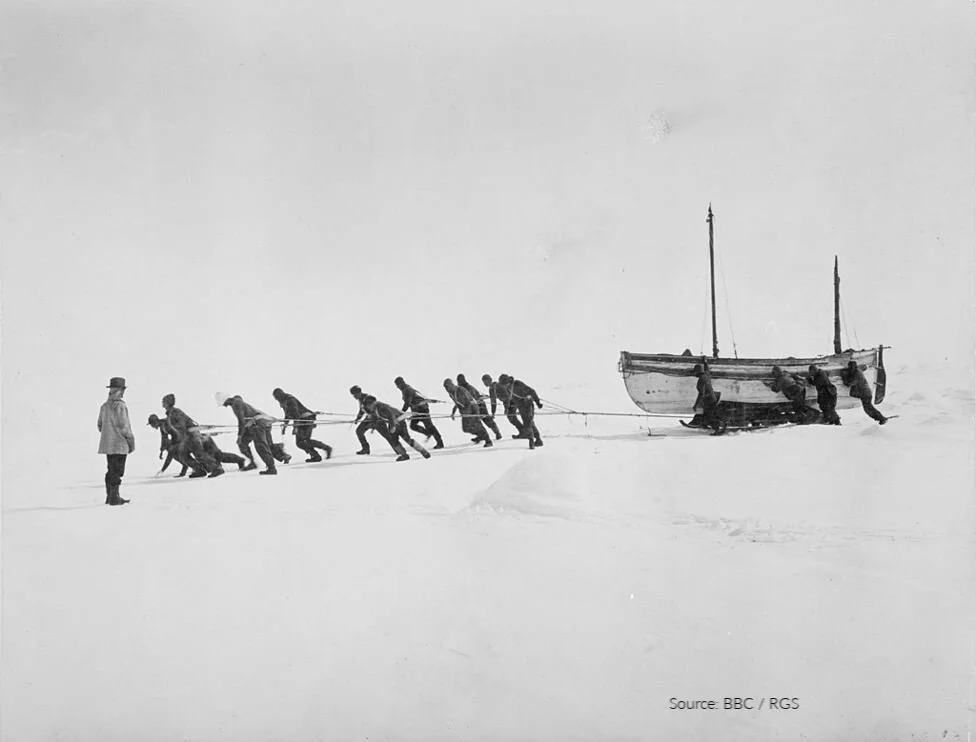Inside Silicon Valley’s SPAC psychology
The SPAC (special purpose acquisition company) hype is the latest financial engineering offering to quickly hit both mainstream media and the backrooms of Silicon Valley.
Wall Street is now “printing” 15 new SPAC IPOs each week while mainstream media prints 15 articles a week on the subject. Perhaps it’s time to explore the psychological motivations driving SPAC-mania.
I’m not going to cover the architecture or the mechanics of SPACs. The concept is the more familiar “reverse merger” where a public company acquires a more valuable private company to increase the public company’s valuation. With SPACs, the public company is literally a blank-check IPO company and the sole goal is for the acquired private company to become the operating public company.
5 traits of CEOs who successfully take their companies public
It’s IPO season. Since June, more than 20 companies have filed S-1s. This includes seven companies filing in one day, on August 24, which is unprecedented. With dozens of CEOs planning to take their companies public, how do we know which ones will pop and which will flop?
In his 2012 book The Founder’s Dilemma, Harvard Business School professor Noam Wasserman famously pointed out that 65% of companies that fail, do so over “people issues” as opposed to core business issues. So, as Wall Street analysts pour over the filing documents and make their recommendations based solely on their evaluations of past and projected financial data, we often ask ourselves, “Who is evaluating the CEO?”
4 things extroverts can learn from introverts to lead through the pandemic
When Bombas CEO Dave Heath walks into a room, he commands attention and authority. With a deeply empathetic and engaging presence, he makes you feel strangely relaxed and energized at the same time.
The only problem right now for Dave and other extroverted leaders like him is that during this global pandemic, there are no physical rooms to be walking into. With most companies putting off coming back into the office until early 2021 at the earliest, and others like Twitter saying employees can work remotely forever, leaders who became reliant pre-COVID on their charisma to influence and inspire their employees are having to retool and rethink their leadership style.
Some Startups Thrive During Crises: Here's How
Carly Stein, Founder & CEO of Beekeeper’s Naturals, speaks to other founders on a regular basis, and even more so over the last couple months. Like most first time entrepreneurs, she’s been asking: What do I need to do to survive this pandemic and how can I prepare for future obstacles?
Most of the advice she got looked like this: conserve your cash by laying off 20% of the team and cutting salaries for the rest. If you look around, many companies have heeded that advice. Some had to when revenue flatlined. Others have simply gone on the defense to play it safe and hibernate, hoping to wait this out.
But Carly didn’t do that.
Velocity Leadership Series Replays
Over the last two months, we’ve had the privilege to interview some incredible CEOs and we’re finding that the companies that are truly thriving right now not only have strong business practices that work, but that they also have cultures that work.
We invite you to tune into the replays of our Velocity CEO Series featuring some of the most interesting discussions of human connection, company culture, business transformations, and other topics with these amazing individuals.
The 7 Things VCs Should Be Doing for Their Founders Right Now
Dear Venture Capitalist,
As we enter what will be at least another month of uncertainty and remote working due to the global Covid Crisis, your role as counsel, mentor, and coach to your portfolio Founders has never been more important. Now is the time your Founders need you most, and how you step up in the coming weeks will likely shape your relationship with these Founders, and may mark a turning point in your career.
Leading in Uncertain Times: Lessons from the Polar Explorers
In recent weeks, many of our coaching clients have sought guidance about charting the best course forward in light of the COVID-19 outbreak and resulting market turbulence. As conferences are cancelled and international travel is curbed, many leaders are asking “How do I effectively lead and make decisions in times like this?”
Just over a hundred years ago, another leader sailed directly into uncertainty. Ernest Shackleton, the famed and ill-fated polar explorer, recruited sailors with an ad that promised “low wages, bitter cold and long hours of complete darkness.” Entire volumes and a Harvard Business School case have been written about him.
Self-Care is a Leadership Move
When a leader is tired, angry, overwhelmed … so is the team. A client said this to me a number of years ago and I have used it to promote the practice of self-care as an essential leadership practice ever since.
As a leader we set the tone for our organizations. People trust us to make thoughtful decisions, stay calm under fire, lead strategically, inspire while staying grounded in reality, and more. Our teams want to trust that we will listen to them. Trust that we care about them as much as we care about the mission.
How DoorDash Builds Performance and Accountability - An Interview with Tony Xu
Our Velocity Memo dives deeply into various topics with leading thought leaders and experts in the industry.
Join in our conversation with Tony Xu, CEO and co-founder of DoorDash. In the interview, led by Velocity Group's John Baird, you’ll learn how Xu built a company culture that embraces accountability and performance.
Why Great Companies Fail: How to Halt the Series B Crunch
While there are many reasons companies fail, the most painful one to watch is when a great product can’t achieve customer traction during the crucial “go-to-market” phase. We call this critical period in the company’s maturity lifecycle “The Traction Gap.” We’ve analyzed these companies and found many of them suffered some combination of small failures associated with product/market fit, team dynamic, revenue model, internal systems or a combination of these.
Running Great Startup Board Meetings
In an ideal world, the most open and least stressful relationships startup founders have would be with their board members. Unfortunately, for many founders the exact opposite is true. According to recent research we did in conjunction with Wildcat Venture Partners and the Traction Gap Institute, less than 50% of founders agreed very strongly with the statement, “I can share my honest worries and concerns with the board.” This is consistent with our work with some of the fastest growing startups in the Valley where founders tell us managing the board is actually one of the most stressful parts of their jobs.
10 Habits of Highly Successful CEOs
In our work with high performing CEOs of fast-growth companies, one thing is abundantly clear: Building a highly-successful company is the result of some fairly predictable executive habits. Consistent and regular habits in the C-Suite are essential in “modeling” the kind of company and culture that you want to build.
According to Noam Wasserman, the author of “The Founder’s Dilemma,” the corollary is also true: 65% of startups fail due to ineffective management and leadership practices, not product or marketing problems.That’s right, Founder…it really is all about the habits and effectiveness of you and your team.
The Emotional Side of Entrepreneurship
Silicon Valley has a problem that not enough people are talking about. Great companies are flaming out or being embroiled in scandals because founders aren’t asking for help when they need it.
Why?
Because asking for help is feared to be a sign of weakness. And that hurts founders, their companies, and the entire start-up ecosystem. VCs often sense these problems but find it difficult to even begin the conversation. As the main people founders look to for guidance, VCs should make it their jobs to kill the culture of “killing it.”
Build a Tribe of Followers, not just Customers: Ten Proven Practices
We all know the best companies have tribes of followers, not simply happy customers. But how? Our coaches have spent the last few months talking to some of the best founders and CEOs in the business about this and other strategies, tactics and tools for success. We’re releasing the results of our research throughout the year in a series of events in collaboration with Wildcat Ventures and the Traction Gap Institute.
Start-Up CEOs Don’t Need More Time — They Need More Focus
All early stage CEOs lament not having enough time each day to get everything done. So, they invest countless cycles looking into tactical productivity hacks and time-saving shortcuts, many of which are effective at helping them save a few minutes here and there.But as a company grows past having 20 or more people, the CEO’s real challenge becomes focus — strategically deciding what to do, not just how to do everything more efficiently.
CEOs: Don’t Let the Imposter Syndrome Keep You from Growing into the Role
The ability of the CEO/Founder to adapt, learn and grow is one of the most critical factors in the company scaling to the next level. The Imposter Syndrome is exactly what it sounds like: feeling like you are undeserving or ill-suited for the role you are in. Most first time CEOs experience this to some degree, especially when things start heading in the right direction and they raise money and hire on lots of new staff.
The Three Roles of a Funded Startup CEO
As the CEO of a fast growing startup, there normally comes a time when you transition from wearing too many hats to wearing just the right hats. It’s that moment when you go from being the “Chief Everything Officer” to being the CEO who is trying to scale an organization by hiring top experienced talent and delegating more.
You know you’re ready to move beyond the “two guys or gals in a garage” stage of start-up development when have some amount of market validation and you’ve most likely raised some real money. Suddenly, your time is “too valuable” for certain tasks.


















